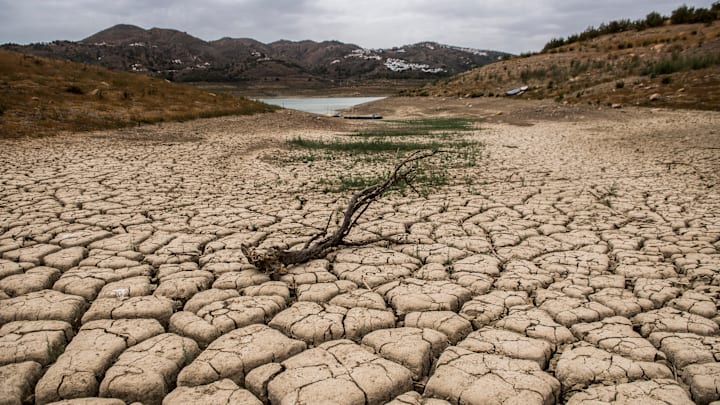The Importance of Soil Health in Sustainable Agriculture

Soil health is a fundamental aspect of sustainable agriculture, playing a crucial role in food production, ecosystem function, and climate regulation. Healthy soils support the growth of crops, enhance biodiversity, and provide a range of ecosystem services that are essential for human well-being and environmental sustainability. Understanding the importance of soil health and the practices that promote it is essential for ensuring the long-term viability of agricultural systems and the sustainability of natural resources.
Soil health refers to the capacity of soil to function as a living ecosystem that sustains plants, animals, and humans. Healthy soils are characterized by their physical, chemical, and biological properties, which support plant growth, nutrient cycling, water retention, and resistance to erosion and degradation. The structure and texture of healthy soils allow for adequate water infiltration and drainage, reducing the risk of flooding and drought. The presence of organic matter and microorganisms enhances nutrient availability and supports the growth of crops and other vegetation.
One of the primary benefits of healthy soils is their ability to support productive and sustainable agriculture. Fertile soils provide essential nutrients for crop growth, leading to higher yields and better-quality produce. The ability of healthy soils to retain water and nutrients reduces the need for irrigation and chemical inputs, lowering production costs and minimizing environmental impacts. Healthy soils also enhance the resilience of agricultural systems to climate variability and extreme weather events, such as droughts and floods, by improving water management and soil structure.
Soil health is closely linked to biodiversity and ecosystem function. Soils are home to a diverse community of organisms, including bacteria, fungi, earthworms, and insects, which play a crucial role in nutrient cycling, organic matter decomposition, and soil formation. These soil organisms contribute to the overall health and productivity of ecosystems by enhancing nutrient availability, improving soil structure, and promoting plant growth. The biodiversity of soil ecosystems also enhances their resilience to environmental changes and disturbances, ensuring the long-term sustainability of soil functions.
Healthy soils play a vital role in climate regulation by sequestering carbon and reducing greenhouse gas emissions. Soils store significant amounts of carbon in the form of organic matter, which is derived from plant residues, roots, and microbial activity. The preservation and enhancement of soil organic matter can increase the carbon sequestration potential of soils, helping to mitigate the impacts of climate change. Sustainable soil management practices, such as conservation tillage, cover cropping, and agroforestry, can enhance soil health and increase carbon storage in agricultural landscapes.
Despite their importance, soils are increasingly threatened by human activities and environmental pressures. Intensive agriculture, deforestation, urbanization, and climate change are leading to soil degradation, erosion, and loss of fertility. The overuse of chemical fertilizers and pesticides can harm soil microorganisms, reduce biodiversity, and contaminate water resources. Soil erosion, driven by unsustainable land use practices, removes the top layer of soil, which is rich in organic matter and nutrients, leading to reduced productivity and increased vulnerability to environmental changes.
Efforts to promote soil health in sustainable agriculture involve a range of practices and approaches that enhance soil fertility, structure, and biodiversity. Conservation agriculture, which includes practices such as minimal tillage, crop rotation, and cover cropping, can improve soil health by reducing soil disturbance, enhancing organic matter, and promoting biological activity. Agroforestry, the integration of trees and shrubs into agricultural landscapes, can improve soil structure, increase biodiversity, and provide additional resources, such as timber and fruit. Organic farming, which avoids synthetic chemicals and emphasizes the use of organic inputs, can enhance soil health and promote sustainable production systems.
Engaging farmers, landowners, and communities in soil health initiatives is crucial for the success of these efforts. Education and outreach programs can raise awareness about the importance of soil health and provide practical guidance on sustainable soil management practices. Policies and incentives at local, national, and international levels can support soil health initiatives by providing financial assistance, technical support, and regulatory frameworks. Research and innovation in soil science can also contribute to the development of new techniques and technologies for improving soil health and sustainability.
In conclusion, soil health is a critical component of sustainable agriculture, supporting food production, ecosystem function, and climate regulation. Healthy soils enhance crop productivity, biodiversity, and resilience, while providing essential ecosystem services that benefit human societies and the environment. However, soils are increasingly threatened by unsustainable practices and environmental pressures. Promoting soil health through conservation agriculture, agroforestry, organic farming, and community engagement is essential for ensuring the long-term sustainability of agricultural systems and natural resources. By recognizing the importance of soil health and adopting sustainable practices, we can enhance the resilience and productivity of agricultural landscapes and contribute to global environmental sustainability.